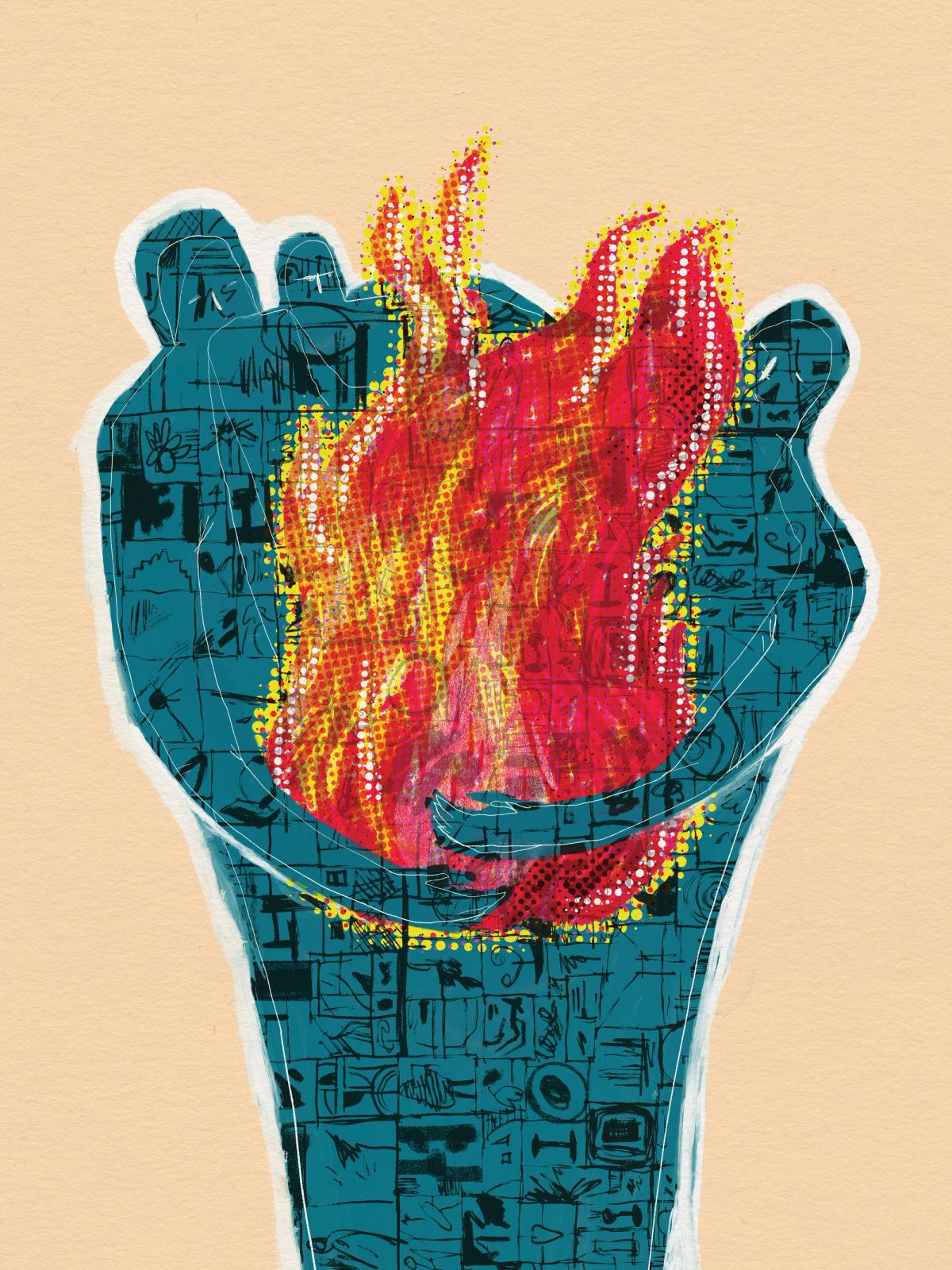Reviews

Lia Purpura, Bundled Black Walnut (detail), featured in AGNI 102
Featured
Pavese’s Hard Labor: On the Risks and Afterlives of Translation
Few poets are as plain as Cesare Pavese—and few as difficult to carry from Italian into English. His poems march with prosaic clarity, yet beneath them runs a pulse of reflection on history and culture, transfigured into allegory. To read him is to be lulled by apparent simplicity, only to feel tremors beneath each line.
A Local Struggle: On Danielle Legros Georges’s Last Chapbook
The chapbook Acts of Resistance to New England Slavery by Africans Themselves in New England—by Danielle Legros Georges, former poet laureate of Boston . . . —is set in a time of revolution, harnessing from that era a spirit of lightness while speaking, as the title says, of Africans’ resistance.
“I am Happiest, Here, Now!”: Arthur Sze’s Poetry of Witness: The Ginkgo Light
Being the natural child of Sylvia Plath and William Blake (with an incurable weakness for on-page dramatics), I was not a natural reader for the work of Arthur Sze, as I first encountered it in the mid 1990s.
Poetry and the Grotesque: Daniel Borzutzky’s Bedtime Stories for the End of the World
Daniel Borzutzky’s poetry is not an easy, elegant read: trauma, prisons, torture, murders, and arresting phrases like “rotten carcass economy” and “the blankest of times” recur ad nauseam.
Hauling Up, Weighing Out
It was in one of our long-ago conversations that I first heard about Joan Wickersham’s immersion in what she called her Vasa project, a most unlikely-sounding undertaking . . .
Submit Reviews to AGNI
Under the stewardship of Reviews Editor Rachel Mennies, we’re looking for roughly 1,500-to-3,000-word review essays that lift us to your singular inquiry-driven vantage: show us what your chosen book reveals to you that only you can show. Begin new conversations; bring us along for your investigations...

In Discussion: AGNI 96 Reviews AGNI 96
In the second edition of the AGNI reviews folio, we respond to AGNI 96 work, a task which asks us to build the bridge and walk it: “between language and what it names, between love and loss”; “between lovers, between believer and God, between observer and nature, between writer and reader.”
From the Archive
“The Whole of It is Winged,” the second poem in Albert Mobilio’s elegant fourth collection, Touch Wood, serves as a dictum for approaching the book at large: “the whole of it is winged, this science/ of speaking about large things/ in pocket-size/ you do it by letting likeness creep in,/ makes me resemble you &/ the other way round & it’s goodbye/ to truth, which/ feels quiet at first.”
